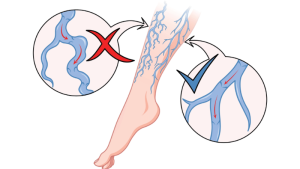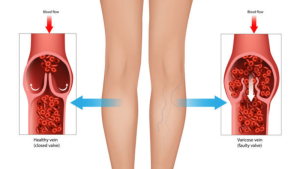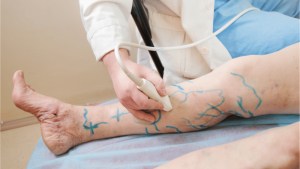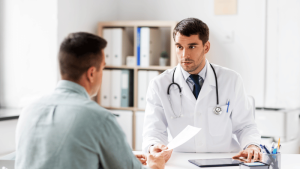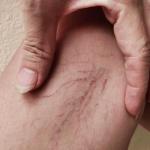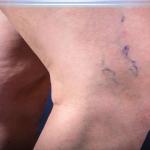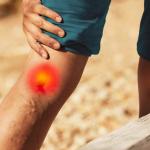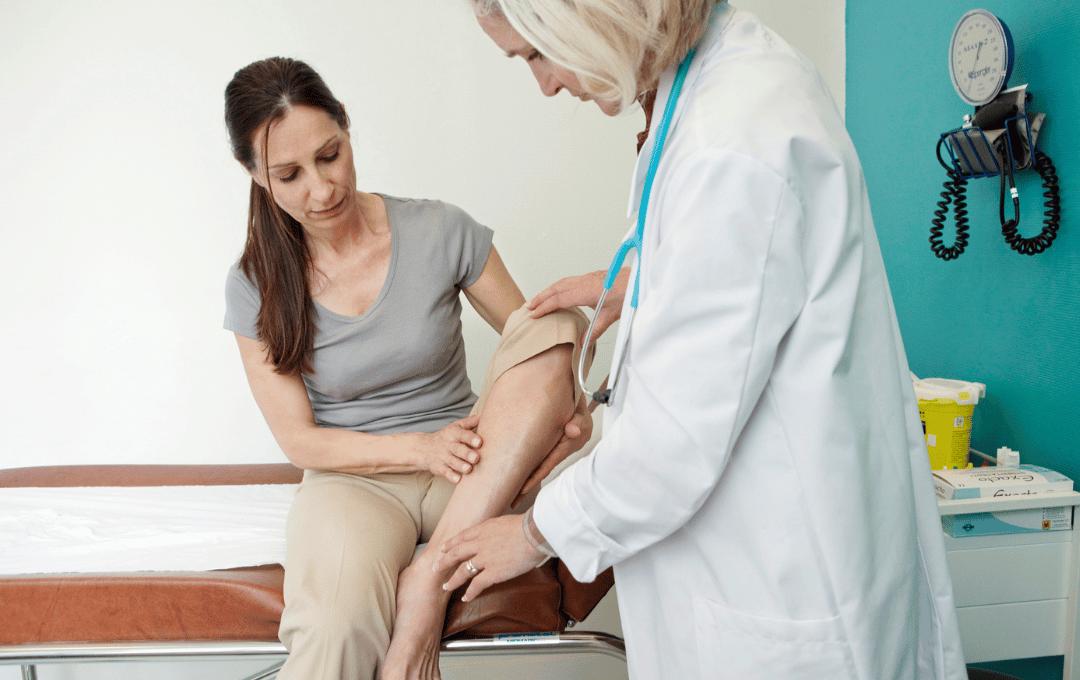
Have you experienced swelling in your lower legs, aching pain, calf cramps, or varicose veins?
These common issues might be due to problems with your vein valves. When the valves in the leg veins can’t close properly to stop blood from flowing backward, blood starts pooling in the legs.
This can cause various symptoms, including leg heaviness, pain, and itching skin. It’s the main cause of chronic venous insufficiency (CVI), which occurs when valves cannot bring blood back up to the heart. It’s also the reason varicose veins develop.
If left untreated, problems with vein valves and varicose veins usually get worse, leading to complications such as venous ulcers—wounds that don’t quickly heal—and blood clots. Understanding the importance of vein valves and recognizing signs of malfunctioning valves can help protect your veins. If you are experiencing symptoms of CVI, a vein specialist can screen your veins and determine the next steps for you.
Schedule Your Consultation Online
The Basics of Vein Valves
Let’s examine valves in veins and their purpose to understand why damaged valves can lead to varicose veins and other problems.
What Are Vein Valves?
Vein valves are delicate flaps of tissue inside veins that keep blood flowing in the right direction. They prevent blood from flowing backward as it’s pumped through the veins toward the heart. The National Institutes of Health says deep veins in the leg pump about 90% of the blood back to the heart.
Why Do Veins Have Valves?
Vein valves are especially important in your legs, where blood has to fight gravity to return to your heart. These valves act as one-way doors. These valves help push blood upward, ensuring proper circulation. When vein valves don’t work correctly, blood can pool in your legs, leading to problems like varicose veins.
The Role of Vein Valves in Circulatory Health
Vein valves malfunction if they can’t seal shut. This can happen for several reasons:
- The vein valves are weakened due to reduced vein elasticity (which happens with aging), low-level chronic inflammation in the body, high blood pressure, or other causes.
- The valves are abnormally shaped, so they can’t fully close.
- The vein has dilated, leaving space between the valves and the vein walls when they close.
In these cases, blood flows backward in the veins, leading to unhealthy, leaky veins. This slows down circulation and causes blood to pool, leading to inflammation, swelling, and stretching of vein walls. This can also cause pain that worsens when standing or engaging in physical activities.
Weakened vein valves can also increase the risk of blood clots, including deep vein thrombosis (DVT). If someone has DVT, it can cause more inflammation, valve scarring, and a widening of the veins. Vein valves that aren’t treated can lead to a higher risk of complications associated with chronic venous insufficiency, including venous ulcers.
Recognizing Vein Valve Problems
If your vein valves are damaged, you might notice symptoms of venous insufficiency, such as the following:
- Swelling in legs
- Tight feeling in calves
- Itchy legs
- Pain when walking
- Varicose veins
- Skin discoloration
- Leg ulcers
- Restless leg syndrome (urge to move your legs)
- Leg cramps or muscle spasms
These symptoms may start small but will likely worsen if your veins remain untreated. If you are worried you may be experiencing any of these symptoms, take our free risk assessment quiz below.
5 Questions to Evaluate Your Vein Health
Treatment for Vein Valve Problems
Minimally invasive vein treatments can help with vein valve problems. USA Vein Clinics offers multiple non-surgical procedures for varicose veins and venous insufficiency. These procedures help improve blood circulation and reduce the risk of complications like DVT and venous ulcers.
Treatments for vein valve problems include the following FDA-approved procedures:
- Endovenous Laser Treatment (EVLT) – A vein treatment that uses heat from laser energy to seal diseased veins.
- Radiofrequency Ablation (RFA) – Relies on heat from radiofrequency energy to close diseased veins.
- ClariVein® treatment – A specialty infusion catheter with a rotating wire tip that delivers medication to treat vein valve issues.
- Varithena Vein treatment – A medical foam is applied to diseased vein valves.
- VenaSeal™ treatment – This procedure uses a special medical adhesive.
- Ultrasound-guided sclerotherapy – Veins with weakened valves are sealed with a medical solution.
- Visual Sclerotherapy – A sclerosant solution targets and closes damaged veins.
These treatments work by closing diseased veins. Blood flow then re-routes to healthy veins, relieving symptoms and diminishing the appearance of varicose veins.
How to Maintain Healthy Vein Valves
You can maintain healthy vein valves with regular vein checkups, early detection, and treatment if you have venous insufficiency. After treatment, healthy habits, such as exercising regularly and eating a diet rich in anti-inflammatory foods, can help prevent vein damage.
USA Vein Clinics is home to expert vein doctors who offer personalized treatment and patient-centered care. With over 160 locations nationwide, scheduling a vein consultation near you is easy. Set up an appointment today to get started.
Get Directions to a Clinic Near You
Frequently Asked Questions
What would happen if veins did not have valves?
Without valves, blood would pool in the lower legs and feet. This can lead to pain, swelling, and varicose veins in the legs.
Can valves in veins repair themselves?
Once they become weak or damaged, valves can’t repair themselves. They can no longer work properly, and the veins leak, causing swelling, leg pain, itching, and other vein symptoms. The only way to stop the progression of symptoms caused by the backflow of blood in the veins, or venous reflux, is with vein treatment.
Do weak vein valves cause varicose veins?
Weak vein valves can cause varicose veins. The weak valves leak, allowing blood to flow backward and pool in the legs. This backflow damages leg veins, causing them to stretch, swell, and twist, leading to the appearance of raised blue veins on the legs.
Do varicose vein valves only impact superficial veins?
Varicose veins can develop in superficial veins (visible because they’re located just below the skin) or deep veins.
When the valves in superficial or deep leg veins can’t close properly, overall circulation is impacted. Poor circulation can lead to various issues, including a weakened immune system and slower healing.
Do veins grow back without valves?
After surgically removing varicose veins, the body builds new connective tissue and forms new veins, sometimes without valves. Without vein valves, these veins can become varicose veins.
Minimally invasive vein treatments like Radiofrequency Ablation (RFA), Varithena vein treatment, and Endovenous Laser Treatment (EVLT) seal damaged veins, reducing the risk of varicose veins returning.

